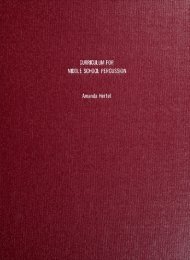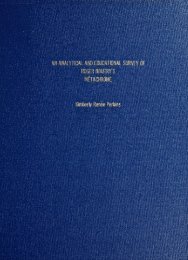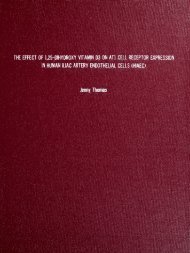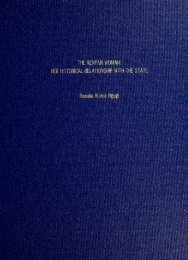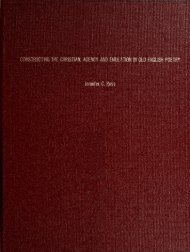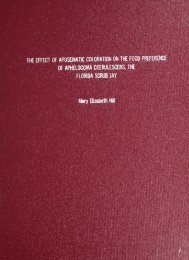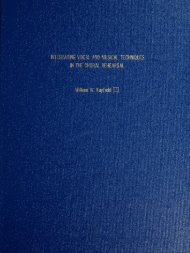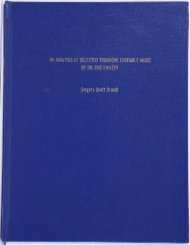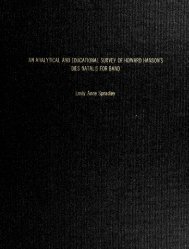Motionless as an Idol - Columbus State University
Motionless as an Idol - Columbus State University
Motionless as an Idol - Columbus State University
- No tags were found...
You also want an ePaper? Increase the reach of your titles
YUMPU automatically turns print PDFs into web optimized ePapers that Google loves.
Bullock 31for Faulkner to communicate the whole of his message related to marginalization, but itc<strong>an</strong> only serve to bolster his points about Southern judgment <strong>an</strong>d adherence to traditionabove all else.As I Lay Dying h<strong>as</strong> m<strong>an</strong>y religious references mostly to God <strong>as</strong> provider <strong>an</strong>doverseer that are used in a culturally religious way, rather th<strong>an</strong> a personally spiritual one.Typically, Southern heritage dictates at le<strong>as</strong>t a conversational knowledge ofProtest<strong>an</strong>tism; people often participate in church events from a sense of duty <strong>an</strong>dcommunity rather th<strong>an</strong> <strong>an</strong>y individual spiritual desire or exploration. Faulkner taps intothese understood falsities of cultural spirituality, though these references would resoundnot only with a Southern audience but with Faulkner himself, whose spiritualityinterviewers were never able to pin down. Cle<strong>an</strong>th Brooks describes the uncertaintysurrounding Faulkner's religion like this:[M]<strong>an</strong>y of [Faulkner's] statements [about his religious beliefs] are vague orpuzzling, or even contradict what is said in other p<strong>as</strong>sages. Ithink we do besttherefore to look at his fiction - that is, to study the way in which his charactersbehave <strong>an</strong>d to note his implied judgments, <strong>as</strong> author, of their actions <strong>an</strong>d beliefs.After all,like that of most modern Americ<strong>an</strong>s, Faulkner's theological educationw<strong>as</strong> shaky. (123)Therefore, adopting Brooks's suggestion, I propose to examine the presentation ofFaulkner's characters <strong>as</strong> representative of, if not Faulkner's, the typical Southerner'sspirituality <strong>as</strong> they present their facades of religion through a socially constructedvocabulary <strong>an</strong>d underst<strong>an</strong>ding of religion's place in their culture. The most import<strong>an</strong>t



